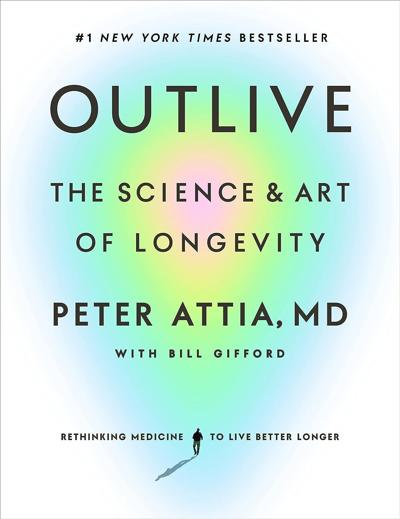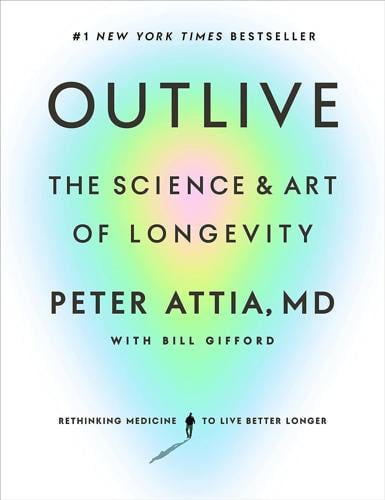I have on more than one occasion heard fellow oldsters say, “If I had known I would live this long, I would have taken better care of myself.”
As its title indicates, this is a book about living longer and its central premise is fully in line with the quip – if we want to live longer, we should do the things earlier in life that will make that possible.
But the book is not just for younger people. I found it fascinating and some of its suggestions were compelling enough to force me to rethink and change some of my own health habits.
Dr. Peter Attia received his medical degree from Stanford, trained in general surgery at Johns Hopkins, and was a surgical oncology fellow at NIH’s National Cancer Institute.
His major focus is on longevity and aging. He founded and operates an organization called “Early Medical” and hosts a popular podcast, “The Drive.”
I mentioned the book to a couple of friends, one of them a nutritionist, and both told me they greatly enjoyed Attia’s podcast. Bill Gifford is a journalist and author of Spring Chicken: Stay Young Forever (or Die Trying). The book is largely in Attia’s voice, so I will refer to him as the author in the remainder of this review.
Attia argues that we should be interested not just in living longer, but in living healthier longer. He draws the distinction between lifespan and healthspan and suggests that we should endeavor to make the latter last as close in length to the former as possible.
Most of the book is devoted to explaining how that might be done. Attia distinguishes among what he calls Medicine 1.0 (pre-modern), 2.0 (modern – the last couple of centuries) and 3.0 (the transformation he advocates). Medicine 2.0, he argues, responds to illnesses after symptoms are detected, while 3.0 seeks to prevent illnesses, often years in advance, by reducing the conditions that lead to them. He is concerned with four major categories of disease (which he calls the “four horsemen”): cancer, heart disease, metabolic dysfunction, and neurogenerative diseases, including Alzheimer’s. The middle section of the book includes informative chapters on each of these maladies.
The third and longest section of the book explores the tools available to guard against the “four horsemen” – exercise, nutrition, good sleep habits, and attention to emotional health. Attia calls exercise “the most powerful longevity drug” and sleep “the best medicine for your brain.” In the final chapter, on emotional health, he is almost painfully autobiographical in describing his own mental health challenges and treatment.
I found Outlive highly engaging and readable, even though some of the discussion of nutrition and medicine was more than I could readily absorb.
I think that one of the things that makes the book accessible to general readers, despite its technical content, is the tone it projects of practical applicability.
Regardless of our age, we are all mortal and we all have an interest in living full and lengthy lives. This book addresses that interest on every page.
















